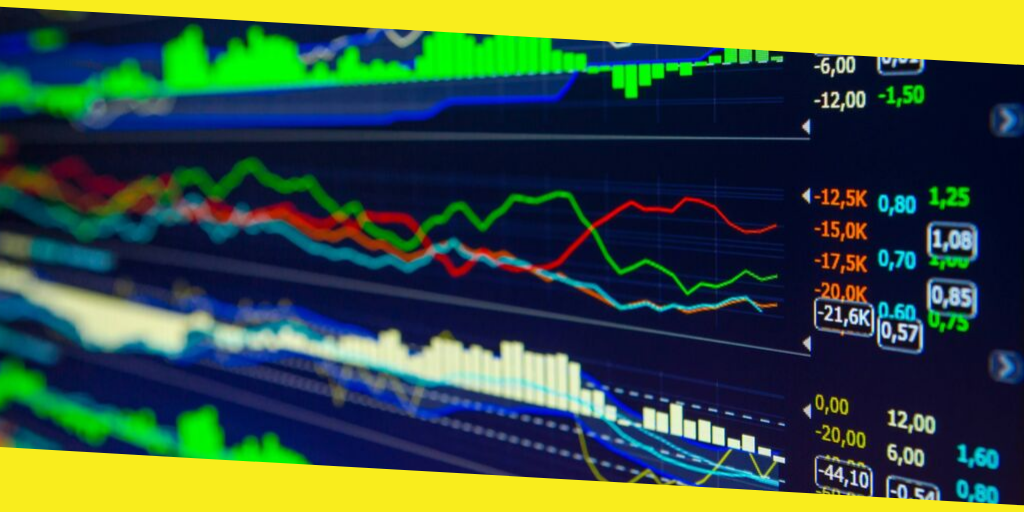A Beginner’s Guide to Financial Markets and Trading
This post was last updated on March 25th, 2024

The gradual evolution of trading has transformed it from a way of survival to a full-fledged business sphere, over the years.
Today, students are considering to take up trading as a full-time job, with the aspirations to make high profits. Financial markets have become more accessible, encouraging more students to steer towards acquiring a professional trading qualification. Another reason for the growing popularity of the trading business is the potential for high gains, with less investment. Though this business sector comes with its own share of risks, it offers a challenging and stimulating work atmosphere.
This blog will serve as a guide for the new entrants into the trading business and an introduction to online trading. Read on to get a fair idea of what the trading profession entails and the various types of financial markets and trading.
What do traders do?
A trader’s job involves the execution of trades in financial instruments such as foreign exchange, bonds, equities and commodities. They can work independently or as representatives of investment banks. Their typical duties include:
- Gathering relevant information and data;
- Collaborating with inter-dealer brokers and sales staff;
- Analysing the market conditions through research, data analysis and valuation;
- Monitoring and measuring the performance of international financial markets;
- Keeping the sales staff informed about the market prices and movements;
- Executing trade transactions;
- Offering daily trading information to clients.
To become a successful trader, there are certain skills that are imperative to have, such as:
- Analytical skills;
- Good numeracy skills;
- Extensive knowledge about financial markets;
- Critical thinking ability;
- Strong interpersonal skills;
- Effective communication skills.
Types of financial markets
- Money market: This financial market is a section of the economy that facilitates short-term funds. It involves borrowing and lending of short-term loans with the repay period of a year or less. The money market includes transaction of assets such as interbank loans, treasury bills (T-bills), certificates of deposit (CDs), repurchase agreements, commercial paper, short-terms securities loans and money market funds.
- Capital market: This involves buying and selling of long-term debts or equity-backed securities. Capital market is responsible for the optimal usage of monetary resources by channelling them into productive ventures. For instance, the money invested in a savings account by an individual can be used by a company or the government for making long-term investments. The financial instruments used for trading in the capital market are – fixed deposits, foreign exchange, debentures, treasury bills, stocks and bonds. The capital market can be further bifurcated into primary market and secondary market.
- Foreign exchange market: The foreign exchange market involves trading currencies in an over-the-counter or global decentralised market. This financial market is responsible for deciding the foreign exchange rates of all currencies and includes buying, selling and exchanging of currencies at set prices. The three main functions of a foreign exchange market are transferring, credit, and hedging functions. You can also use the mt4 trading platform to trade a range of markets including the foreign exchange market.
- Derivatives market: This financial market involves transacting in financial instruments that have been derived from other assets. The financial instruments of a derivatives market are divided into four categories, which are swaps, futures, options and forwards.
- Commodity market: The commodity market includes transacting in tradable commodities such as energy, livestock, metals and meat. This type of financial market involves trading in the primary economic sector.
Type of trading
- Technical trading: This trading technique involves analysis of stock or index graphs to identify any signs of divergence or convergence. Technical traders assess charts and graphs to locate any buying or selling transactions.
- Swing trading: In swing trading, traders hold their positions for a time period of longer than a day. Swing traders buy and sell stocks that have technical indicators suggesting the occurrence of a downward or upward trend in the near future.
- Scalping: This trading style focuses on profiting through small price gaps. Scalping is generally executed after a trade has been executed and become profitable. Scalping traders should have a perfect exit strategy in place, especially since one bad transaction can alleviate the small gains made from other trades.
- Momentum trading: This trading type involves the buying and selling of trade in accordance with the strength of recent price trends. Momentum traders focus their trading efforts to certain stocks that are moving in a particular direction in large numbers.
If you are interested in taking up the trading profession, acquire a professional trading skills to understand the nuances of the sector. Ensure that you conduct extensive research about the type of trading you want to specialise in before you enrol for a programme. Start your trading journey today and become a professional trader.
You may like this
Recommended For You
A Comprehensive Guide to Data Engineer and Big Data Engineer Roles
Most Inside
Most Inside offers high-quality recommendations and valuable updates to enhance all aspects of your life, providing premium guidance and enriching experiences.




